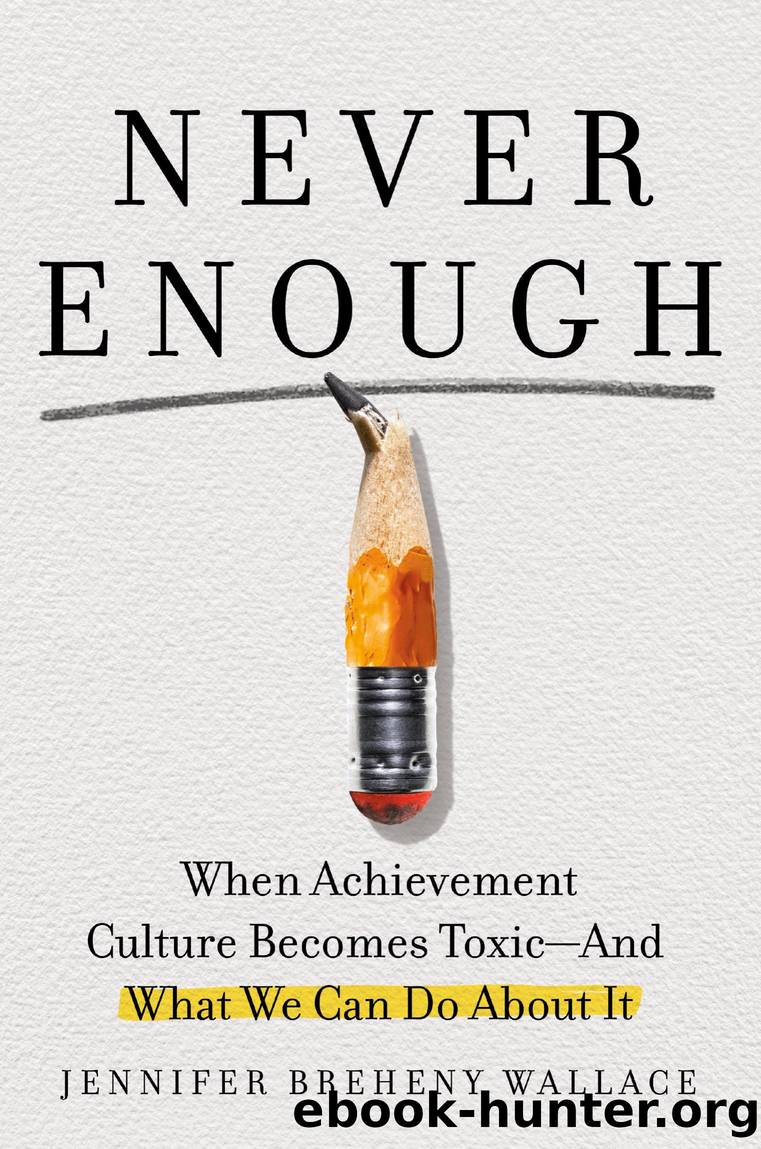Never Enough: When Achievement Culture Becomes Toxic-and What We Can Do About It by Jennifer Breheny Wallace

Author:Jennifer Breheny Wallace [Breheny Wallace, Jennifer]
Language: eng
Format: epub
Publisher: Penguin Publishing Group
Published: 2023-08-22T00:00:00+00:00
Normalize Healthy Reliance
Early in the school year, Ms. Taylor likes to open class with a group discussion about how vulnerable it can make someone feel to receive feedback. She calls on more advanced students to share their experience: What was it like for them when they received comments on a story the first time? How did they learn how to report and write for the paper, and why is feedback so useful? âOh, my God,â an older student told Thea. âThe first time I got feedback, I felt so awful and stupid. Then I realized that the editor was trying to help me.â Ms. Taylor told me that the discussion seemed to bring visible relief. âWe talk about how it takes courage to both ask for input and receive it,â she said. âAnd then thereâs all this mini modeling going on between the older classmates and the younger ones.â
One of the most practical ways to cement our value and that of others is by asking for help, relying on someoneâs support, and feeling that we are worthy of that support. But in competitive environments, some students can come to believe that admitting that they need support means they are inadequate. Itâs why so many adolescents suffer in silence, unbeknownst to us, until they implode.
Asking for help can feel especially difficult for our kids because they are so competent in the first place. âMy familyâs very supportive, and theyâve always made it clear that I can ask for help,â Thea told me. âBut I am innately very independent, and Iâve always wanted to prove to myself and to the people around me that Iâm smart and capable.â Being surrounded by so many other talented kids made expressing any kind of vulnerability feel not just hard but practically impossibleâhow could she, when no one else was? âI had built this shame around asking for help,â she told me.
Chloe felt the same way. New to Ms. Taylorâs class, when she received an edit on her first piece of writing, she was mortified. âI considered myself a writerâI enjoyed writing, it was my thing. And at a school like Archer, it felt especially important to me, like I needed to have this natural talent.â But, when she got back that first assignment, it was filled with comments from the editorial staff. âI hated it,â she said. With Ms. Taylorâs coaching, however, she found the practice of inviting input transformative. âTo put yourself out there and discover that this can actually make you betterâit changed how I felt in class,â she told me.
Opening herself up to feedback improved her relationships, too. âIt bleeds over, because it teaches you how to bring your newspaper friends into other areas of your life: âI trust you to give me good advice,â âI trust you to learn about this situation Iâm not comfortable with myself yet,âââ she said. Interestingly, she continued, the weekly experience of asking for and offering input made her feel less vulnerable. âBecause Iâve gotten so much input from people within this close group, Iâm more confident,â she told me.
Download
This site does not store any files on its server. We only index and link to content provided by other sites. Please contact the content providers to delete copyright contents if any and email us, we'll remove relevant links or contents immediately.
Talking to Strangers by Malcolm Gladwell(13370)
The Compound Effect by Darren Hardy(8967)
Tools of Titans by Timothy Ferriss(8396)
Wonder by R. J. Palacio(8110)
The Lover by Duras Marguerite(7902)
A Court of Wings and Ruin by Sarah J. Maas(7847)
The Circle by Dave Eggers(7115)
Deep Work by Cal Newport(7083)
Kaplan MCAT General Chemistry Review by Kaplan(6933)
To All the Boys I've Loved Before by Jenny Han(5851)
Wiseguy by Nicholas Pileggi(5786)
The Body: A Guide for Occupants by Bill Bryson(5096)
Eat That Frog! by Brian Tracy(4540)
1,001 ASVAB Practice Questions For Dummies by Powers Rod(4505)
Cracking the GRE Premium Edition with 6 Practice Tests, 2015 (Graduate School Test Preparation) by Princeton Review(4293)
Pre-Suasion: A Revolutionary Way to Influence and Persuade by Robert Cialdini(4232)
Barron's AP Biology by Goldberg M.S. Deborah T(4150)
ACT Math For Dummies by Zegarelli Mark(4048)
Alive: The Story of the Andes Survivors by Piers Paul Read(4032)
